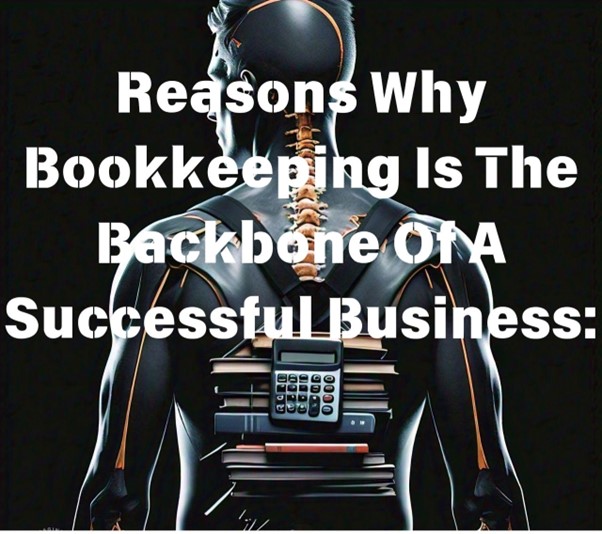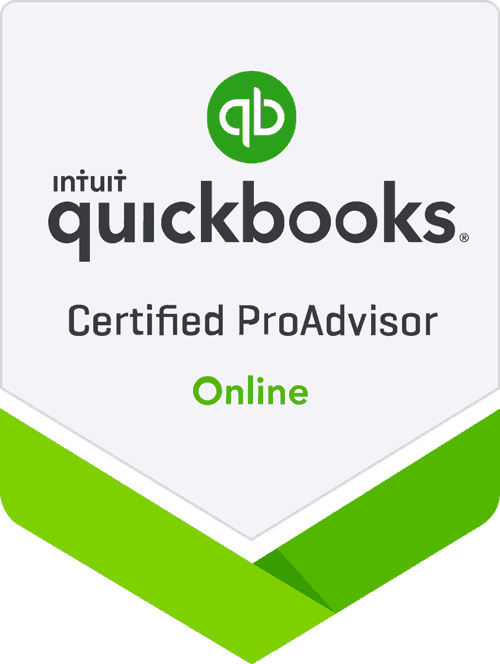WHY BOOKKEEPING IS THE BACKBONE OF A SUCCESSFUL BUSINESS
As a business owner, you wear many hats. From managing day-to-day operations to making strategic decisions, it can be overwhelming to keep everything running smoothly. However, there’s one crucial aspect of your business that can make all the difference: bookkeeping.
In this blog, we’ll explore why bookkeeping is the backbone of a successful business, and provide practical solutions to common pain points. Whether you’re a seasoned entrepreneur or just starting out, this guide is for you.
What is Bookkeeping?
Bookkeeping is the process of recording, classifying, and reporting financial transactions. It’s the foundation of accounting, providing the necessary data to prepare financial statements, tax returns, and other critical documents.
Why is Bookkeeping Important?

Bookkeeping is essential for several reasons:
- Accurate Financial Reporting: Bookkeeping ensures that your financial records are accurate, up-to-date, and compliant with regulatory requirements. Bookkeeping also provides the foundation for accurate financial reporting, enabling business owners to make informed decisions. A Canada tax expert or financial advisor in Ontario can help ensure compliance with regulatory requirements.
- Informed Decision-Making: Bookkeeping provides a clear picture of a company’s financial situation, enabling business owners to make informed decisions about investments, funding, and resource allocation.
- Tax Compliance: Bookkeeping helps businesses meet tax obligations, avoid penalties, and take advantage of available tax credits and deductions. A tax professional can ensure compliance with Canada tax laws and regulations.
- Cash Flow Management: Bookkeeping enables businesses to track cash inflows and outflows, identify areas for improvement, and maintain a healthy cash flow. A financial advisor can help create a cash flow forecast and provide guidance on cash flow management.
- Risk Management: Bookkeeping helps businesses detect potential risks, such as fraud or accounting errors, and take corrective action. A financial advisor can help identify potential risks and provide guidance on risk management strategies.
Reasons Why Bookkeeping Is The Backbone Of A Successful Business:

- Improved Financial Transparency
Bookkeeping provides a clear and transparent picture of a company’s financial situation, enabling business owners to make informed decisions and drive growth.
2. Enhanced Financial Planning
Bookkeeping enables businesses to create accurate financial plans, set realistic goals, and drive growth. A financial advisor can help create a comprehensive financial plan tailored to your business needs.
3. Better Budgeting
Bookkeeping enables businesses to create accurate budgets, track expenses, and make informed decisions about resource allocation. A financial advisor can help create a comprehensive budget that aligns with your business goals.
4. Improved Financial Analysis
Bookkeeping enables businesses to analyze financial data, identify trends, and make informed decisions. A financial advisor can help interpret financial data and provide strategic guidance.
5. Scalability and Growth
Bookkeeping enables businesses to scale and grow by providing a solid financial foundation. A financial advisor can help you navigate the financial aspects of growth and expansion.
6. Maintains Organized Records
That last-minute stress of trying to find a crucial piece of business can lead to missed deadlines and some small errors creeping through. Businesses of any size can’t afford to make any mistakes and bookkeeping regularly can help with that.
By doing your bookkeeping often, staying on top of them and not leaving it to the last second, you’ll be able to maintain organised records. Over time, it’ll make it much easier to find the bits of information you desperately need in no time.
NOTE: By outsourcing bookkeeping tasks to a financial advisor or bookkeeping service, business owners can free up time to focus on core business activities and drive growth.
Common Bookkeeping Pain Points and Solutions

As a business owner, you may face the following bookkeeping challenges:
1. Lack of Time: Outsourcing bookkeeping tasks to a financial advisor in Ontario or a Canada tax expert can free up time for core business activities.
2. Inaccurate Records: Implementing a cloud-based accounting system, such as QuickBooks or Xero, can improve accuracy and reduce errors.
3. Difficulty with Tax Compliance: Consulting with a tax professional can ensure you’re meeting all tax obligations and taking advantage of available tax savings.
4. Cash Flow Management: Creating a cash flow forecast and regularly reviewing financial statements can help you identify areas for improvement.
Things to Avoid in Bookkeeping
To ensure accurate and efficient bookkeeping, avoid the following common mistakes:
1. Mixing Personal and Business Finances: Keep personal and business transactions separate to avoid confusion and potential tax issues.
2. Ignoring Financial Statements: Regularly review financial statements to identify trends, detect errors, and make informed decisions.
3. Failing to Reconcile Accounts: Regularly reconcile bank and credit card statements to ensure accuracy and detect potential discrepancies.
4. Not Seeking Professional Help: Don’t hesitate to consult with a financial advisor or tax professional if you’re unsure about any aspect of bookkeeping.
Frequently Asked Questions
1. Q: What is bookkeeping, and why is it crucial for businesses?
A: Bookkeeping is the process of recording and managing a company’s financial transactions. It is essential for businesses as it provides accurate financial information, enabling informed decision-making.
2. Q: How does bookkeeping impact a company’s financial health?
A: Bookkeeping helps maintain accurate financial records, track expenses, and manage cash flow. This, in turn, enables businesses to make informed decisions, avoid financial pitfalls, and ensure long-term financial stability.
3. Q: What are the benefits of accurate bookkeeping for businesses?
A: Accurate bookkeeping provides numerous benefits, including:
- Improved financial management
- Enhanced decision-making
- Increased transparency and accountability
- Better cash flow management
- Reduced errors and financial discrepancies
4. Q: How can bookkeeping help businesses reduce financial risks?
A: Bookkeeping helps identify potential financial risks, such as cash flow problems, unpaid invoices, and unnecessary expenses. By addressing these issues, businesses can reduce financial risks and ensure long-term stability.
5. Q: How does bookkeeping inform business decision-making?
A: Bookkeeping provides accurate financial data, enabling businesses to make informed decisions about investments, expansions, and cost-cutting measures.
6. Q: What role does bookkeeping play in creating a business budget?
A: Bookkeeping provides the financial data necessary to create a realistic and effective business budget. By tracking income and expenses, businesses can identify areas for cost reduction and allocate resources efficiently.
7. Q: What are some best practices for bookkeeping in small businesses?
A: Some best practices for bookkeeping in small businesses include:
- Maintaining accurate and up-to-date financial records
- Implementing a robust accounting system
- Regularly reviewing and reconciling financial statements
- Ensuring compliance with tax laws and regulations
8. Q: How often should businesses review and update their bookkeeping systems?
A: Businesses should regularly review and update their bookkeeping systems to ensure accuracy, efficiency, and compliance with changing regulations. This can be done quarterly, semi annually, or annually, depending on the business’s specific needs.
Conclusion
Bookkeeping is the backbone of a successful business, providing the necessary foundation for accurate financial reporting, informed decision-making, and tax compliance. By understanding the importance of bookkeeping and avoiding common mistakes, you can ensure your business is well-equipped for long-term success.
Call to Action
If you’re struggling with bookkeeping or need guidance on how to improve your financial management, book a consultation with our financial advisor in Ontario today . Our team of experts is dedicated to helping you achieve financial clarity and success. Contact us to learn more about our bookkeeping services and schedule a consultation.
About Author
Shanel John is a dedicated Certified Public Accountant (CPA) at G.L.H. Accounting, specializing in Income Tax with over 10 years of experience. Based in Brampton, Ontario, Canada, Shanel offers expertise in tax preparation, financial accounting, and advisory services. A certified QBO Pro Advisor, Shanel’s decade-long experience and knowledge make her a trusted figure in the accounting field.



